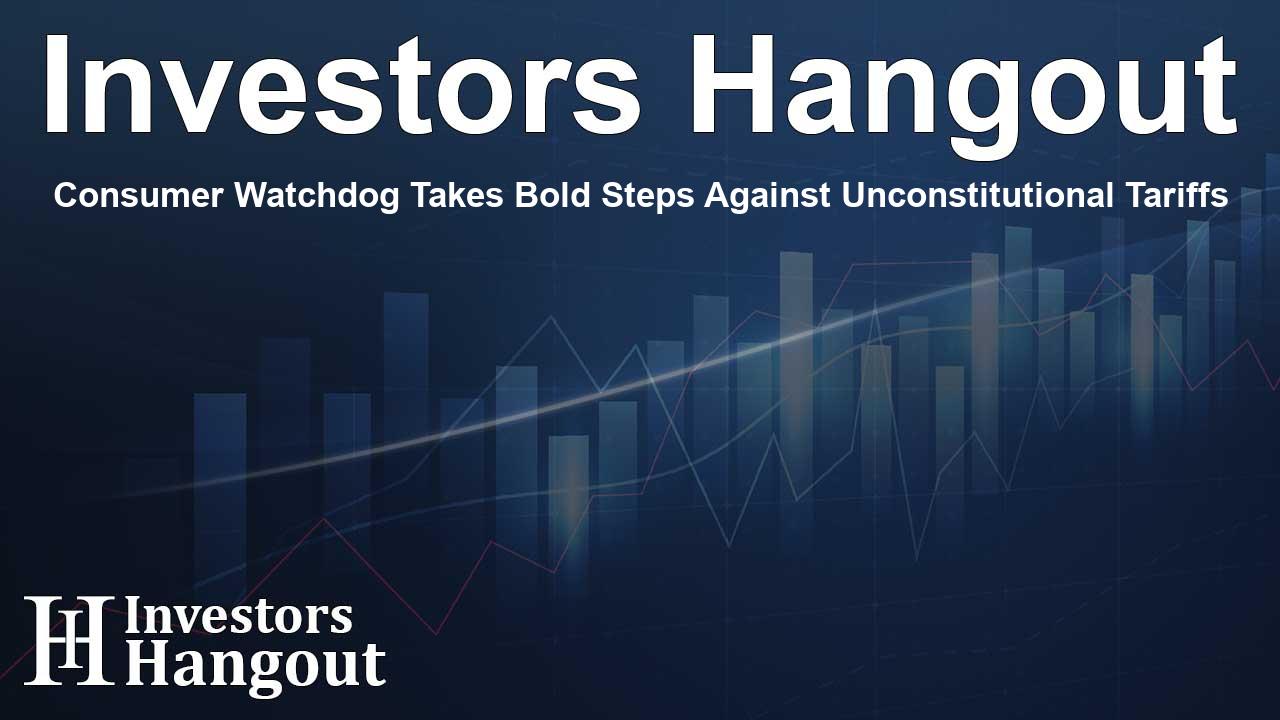Consumer Watchdog Takes Bold Steps Against Unconstitutional Tariffs

Consumer Watchdog Takes Action Against Unauthorized Tariffs
Consumer Watchdog has recently expanded its legal efforts by filing an amicus curiae brief in the Court of Appeals for the D.C. Circuit. This step is part of their ongoing mission against former President Trump's unauthorized use of emergency powers, specifically regarding the imposition of tariffs. The organization argues that these tariffs conflict with constitutional guidelines and were implemented without lawful congressional permission.
Legal Proceedings and Implications
The lawsuit challenges the tariffs set forth under the International Emergency Economic Powers Act (IEEPA), asserting they were never sanctioned by Congress. Consumer Watchdog contends that such actions by the previous administration undermine the constitutional balance of power vital for proper governance. By filing this brief, Consumer Watchdog continues its broad legal initiative throughout various federal courts, including those located in California.
The Importance of Upholding Constitutional Rights
William Pletcher, the litigation director at Consumer Watchdog, emphasized the need for safeguarding both the Constitution and the rights of American consumers. He stated, "Allowing any President to impose sweeping tariffs without clear limits undermines Congress's core role in tax and trade policy and threatens the balance of powers the Constitution requires." This statement underscores the significance of judicial oversight in regulatory matters that could affect a significant portion of the population.
Constitutionality of Tariffs Under IEEPA
The brief presented by Consumer Watchdog argues vigorously that the IEEPA does not grant the President the power to unilaterally impose tariffs, particularly in an unregulated and sporadic manner. The organization conveys that accepting the government's argument could present severe constitutional challenges, especially concerning the non-delegation doctrine that safeguards Congress's exclusive power to levy taxes.
Impact on Consumers and Small Businesses
Pletcher noted, "These tariffs operate as a regressive tax affecting working families and small enterprises. They are imposed through an unwieldy process that follows a shifting landscape of rules and lacks public consultation." Such statements highlight the detrimental effects of these tariffs on everyday Americans and the economy as a whole.
Detailed Examination of Executive Orders
The brief encompasses a comprehensive addendum documenting numerous executive orders that were issued throughout 2025. These directives adjusted or enacted tariffs almost daily, often responding to unsolicited social media commentary. This pattern, according to Consumer Watchdog, sheds light on a trade policy that appears both lawless and arbitrary, lacking any solid legal framework.
Legal Representation and Support
Consumer Watchdog is being represented in this significant matter by Alan Morrison, the Lerner Family Associate Dean at George Washington University Law School, along with a team from Morris, Manning & Martin LLP. Their commitment ensures that consumer interests continue to be prioritized at the highest levels of legal representation.
Frequently Asked Questions
What is the main objective of Consumer Watchdog's brief?
The main aim is to challenge the legality of tariffs imposed by the previous administration under claims of unauthorized use of emergency powers.
How does this situation affect everyday consumers?
The imposed tariffs act as a regressive tax, disproportionately impacting working families and small businesses through increased costs.
What is IEEPA, and why is it relevant?
IEEPA is the International Emergency Economic Powers Act, which Consumer Watchdog argues does not legally empower the President to impose tariffs without congressional approval.
Who is representing Consumer Watchdog in court?
Alan Morrison from George Washington University Law School, along with attorneys from Morris, Manning & Martin LLP, are providing legal representation.
What are the possible outcomes of this legal challenge?
The litigation could result in the courts establishing clear regulations on presidential power regarding tariffs, possibly reinforcing the constitutional balance between branches of government.
About The Author
Contact Addison Perry privately here. Or send an email with ATTN: Addison Perry as the subject to contact@investorshangout.com.
About Investors Hangout
Investors Hangout is a leading online stock forum for financial discussion and learning, offering a wide range of free tools and resources. It draws in traders of all levels, who exchange market knowledge, investigate trading tactics, and keep an eye on industry developments in real time. Featuring financial articles, stock message boards, quotes, charts, company profiles, and live news updates. Through cooperative learning and a wealth of informational resources, it helps users from novices creating their first portfolios to experts honing their techniques. Join Investors Hangout today: https://investorshangout.com/
The content of this article is based on factual, publicly available information and does not represent legal, financial, or investment advice. Investors Hangout does not offer financial advice, and the author is not a licensed financial advisor. Consult a qualified advisor before making any financial or investment decisions based on this article. This article should not be considered advice to purchase, sell, or hold any securities or other investments. If any of the material provided here is inaccurate, please contact us for corrections.
